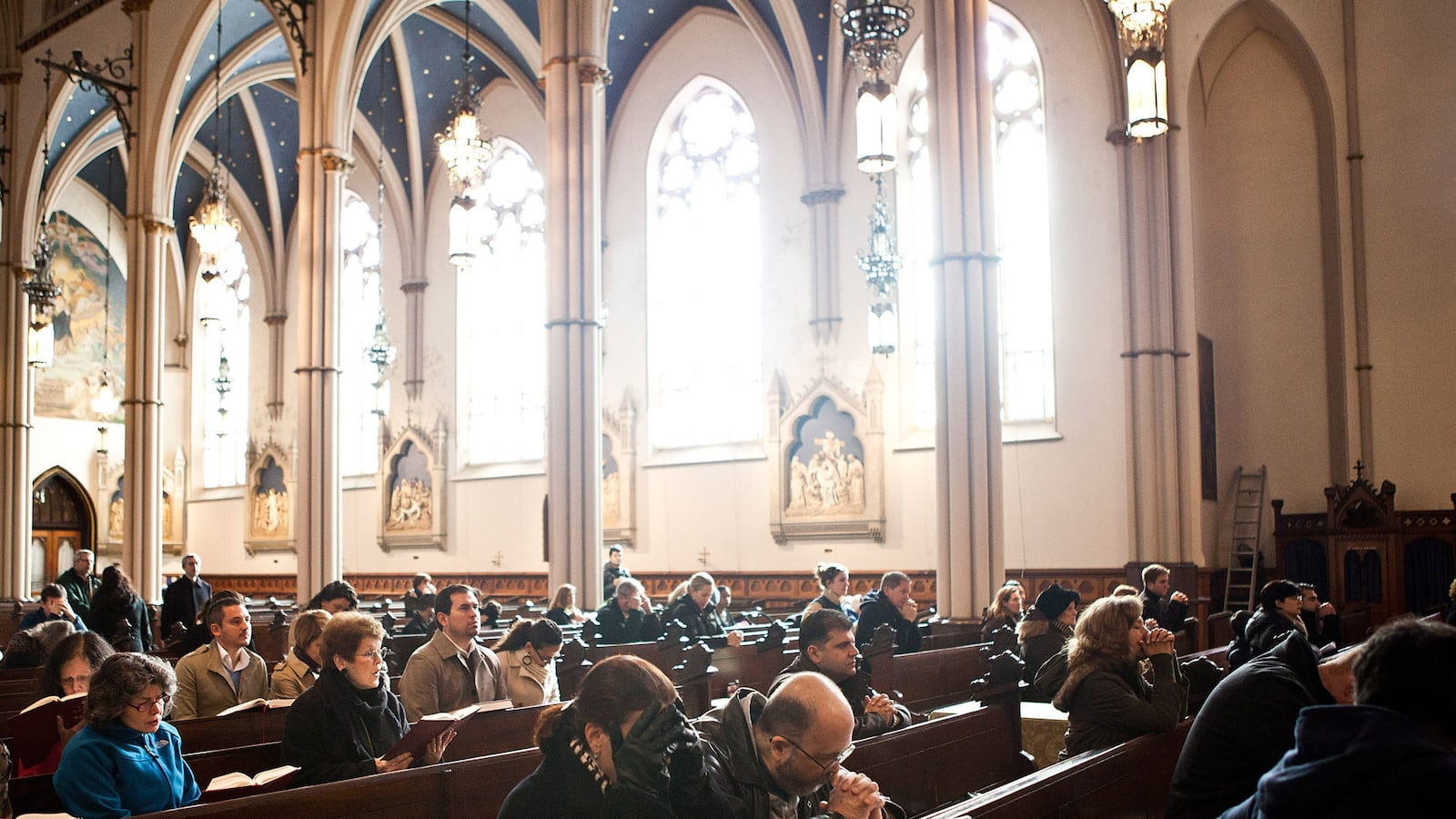A survey published Tuesday by Gallup reveals that seven in 10 Americans consider themselves moderate or very religious. The research, based on more than 300,000 interviews with Americans conducted throughout 2012, shows basically what American religion surveys always show: the country is overwhelmingly religious, with a very slowly increasing number of nonbelievers, and a slightly faster increase in “unbranded” religious believers.

The Gallup findings are helpful reminder of how media coverage of religion surveys can oversell shifts in belief and practice on the ground. In October, a Pew survey made headlines for its finding that one in five Americans claims no religious belief, and that 30 percent of younger Americans are nonreligious. News reports, including ones in Newsweek and The Daily Beast, were quick to connect these trends with the political outlook of the Republican Party, which has in recent years depended heavily on various religious demographics.
Survey after survey has confirmed a gradual decline of religious belief and practice in the United States. Indicators of decreasing religious commitment have been piling up: less religious identification, a steady increase in self-identification as nonreligious or atheist, and a slight decrease in certainty of the existence of God. The most recent American Religious Identification Survey found a 10 percent decrease in Americans claiming to be Christians, and one in five failed to claim any religion at all. If these trends continue and deepen, they are likely to have significant impact on the electoral landscape, and have bleak implications for the GOP, which has increasingly been conflated with religiously conservative positions.
But it’s easy to exaggerate how quickly American secularization is taking place. Even surveys that show increases in unbelief, like October’s Pew survey, still describe an overwhelmingly religious population. In that study, 80 percent of Americans still identify with a particular religious faith, and 80 percent say religion is “very” or “somewhat” important in their lives. Only 25 percent of Americans—a tiny number compared with the deeply secular populations of Western Europe—say they rarely attend religious services. Tuesday’s Gallup survey shows that 77 percent of Americans still claim a religion, despite the trends toward “unbranded” religion. It also indicates Americans tend to get more religious with age, and speculates that our aging population might also spell an increase in reported religiosity.
“There’s a change in how Americans approach religion,” said Frank Newport, the editor-in-chief of Gallup and the author of its new publication, God is Alive and Well: The Future of Religion in America. “But underneath it all, the percentage who say they believe in God hasn’t changed much.”
The most significant trend from the past few years of data is that, where Americans were once separated by religious sectarianism, they increasingly profess some form of Christianity or other abstract spirituality without a denominational label. Many Americans who fall into this category, often referred to as the “Nones,” are not nonreligious, but are less likely to be a part of a particular church. In the October Pew survey, one in five American adults is a “None”—but 68 percent of them still say they believe in God.
Newport said that Gallup’s findings have shifted dramatically from the 1950s, when nearly 100 percent of Americans claimed some type of religious identity. “It was a cultural identity—if you were raised Catholic, you stayed Catholic the rest of your life even if you hadn’t been to mass in 20 years. Now, people are freer to say ‘I’m not anything.’”
There is no doubt that unbelief is on the rise in America, particularly among those under 30, and that we are increasingly open about our nonparticipation in religion. Studies suggest that for many, religion is as much a social and cultural attachment as a deep spiritual commitment. But it’s worth remembering that, even as the headlines prophesy an emerging secular nation, America will remain religious for a long time.






